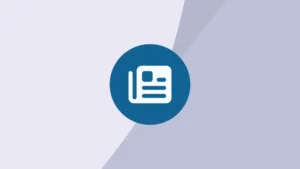Executive dysfunction is a behavioral symptom that disrupts a person’s ability to manage their own thoughts, emotions, and actions. It’s most common with certain mental health conditions, especially addictions, behavioral disorders, brain development disorders, and mood disorders.
Cleveland Clinic Health Library
Executive functions are higher-order cognitive processes that enable individuals to plan, focus attention, remember instructions, and juggle multiple tasks successfully. These functions are essential for goal-directed behavior and are primarily managed by the prefrontal cortex of the brain.
University of Rochester Medical Center
What is the impact of Executive Dysfunction in the classroom?
Executive dysfunction is often associated with a range of neurological and psychological conditions, including Attention-Deficit/Hyperactivity Disorder (ADHD), Autism Spectrum Disorder (ASD), depression, and traumatic brain injury (TBI).
Students experiencing executive dysfunction may face several challenges in educational settings:
- Difficulty Initiating Tasks: They may struggle to begin assignments or activities, often appearing unmotivated or procrastinating.
- Poor Organizational Skills: Keeping track of materials, assignments, and deadlines can be problematic, leading to incomplete or missing work.
- Time Management Issues: Students may underestimate how long tasks take, resulting in rushed or unfinished work.
- Emotional Regulation Challenges: They might have difficulty controlling emotions, leading to outbursts or withdrawal in response to frustration.
How do you design specialized instruction for students experiencing Executive Dysfunction?
Educators can implement several strategies to support students:
- Structured Routines: Establishing consistent daily schedules can help students anticipate and prepare for transitions.
- Visual Aids and Checklists: Providing visual schedules and step-by-step checklists can assist in task completion.
- Time Management Tools: Using timers or alarms can aid students in allocating appropriate time to tasks.
- Explicit Instruction in Organizational Skills: Teaching students how to organize materials and plan assignments can foster independence.
How can Goalbook Toolkit support students who exhibit high-masking behaviors?
Your Goalbook account offers you resources and support that address the challenges of students who experience Executive Dysfunction. Utilize these resources to build your capacity to produce high-quality IEPs.
Check out these IEP resources to help your students:
- Use the Apply a Strategy to Prioritize Assignments learning goal to help students better manage their academic responsibilities.
- Use these Printable Visual Task Schedules to help students better organize their time and tasks throughout the day.
- Gather baseline data for students using these Executive Functioning Baseline Assessments.






